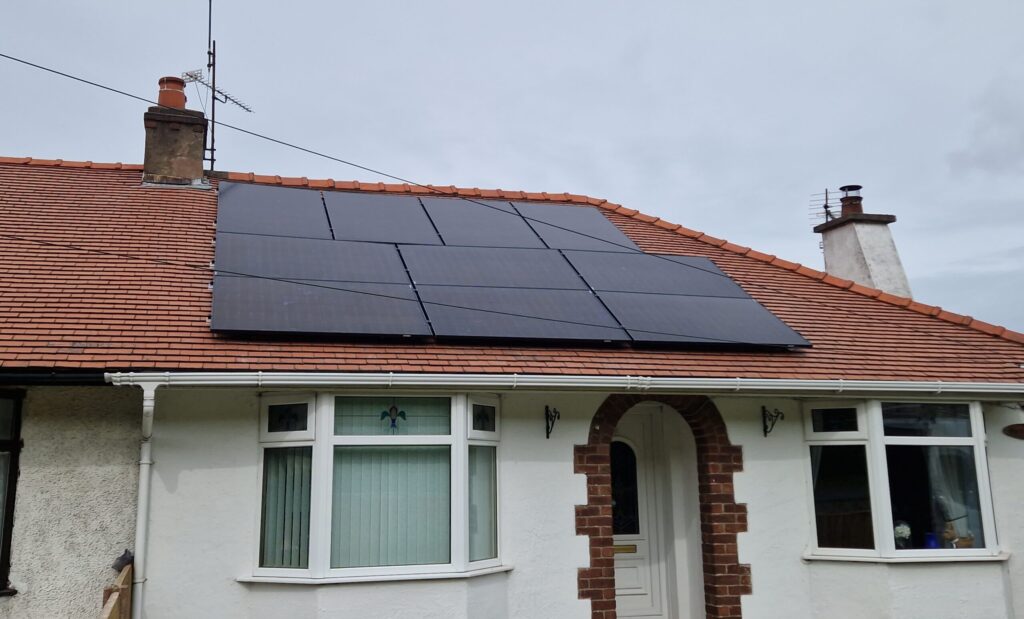In recent years, the UK has seen a surge in interest and investment in renewable energy sources, particularly solar power. As the world shifts towards cleaner energy alternatives to combat climate change, solar energy has emerged as a promising solution. However, a common question that arises, especially in a country known for its cloudy skies, is whether solar power is effective on overcast days. In this article, we’ll delve into the intricacies of solar energy generation in the UK, exploring its viability even when the sun isn’t shining brightly.
Understanding Solar Power:
Solar power systems harness the energy from sunlight and convert it into electricity using photovoltaic (PV) panels. These panels consist of numerous solar cells made of semiconductor materials like silicon. When sunlight strikes these cells, it creates an electric field, generating direct current (DC) electricity. This electricity is then converted into alternating current (AC) by inverters, making it suitable for use in homes and businesses.
The Impact of Cloud Cover:
Cloud cover does indeed affect solar power generation, as it reduces the intensity of sunlight reaching the solar panels. However, the degree of impact varies depending on several factors, including the type of clouds, thickness, and duration of coverage.
Types of Clouds and Their Impact:
- Cumulus Clouds: These fluffy, white clouds often appear on sunny days and typically have minimal impact on solar power generation.
- Stratus Clouds: Low-lying, thick clouds can significantly reduce sunlight penetration, leading to a noticeable decrease in solar energy production.
- Cirrus Clouds: High-altitude, wispy clouds may partially obstruct sunlight but generally have less impact on solar power generation compared to thicker clouds.
Performance of Solar Panels on Cloudy Days:
While solar panels are most efficient in direct sunlight, they can still generate electricity under cloudy conditions. Modern solar panels are designed to capture diffused sunlight, which occurs when sunlight scatters in the atmosphere and reaches the Earth’s surface even on cloudy days. While the energy output may be lower compared to clear, sunny days, solar panels can still produce a significant amount of electricity.
The Role of Geographic Location:
The effectiveness of solar power generation on cloudy days also depends on the geographical location. The UK, despite its reputation for cloudy weather, receives a substantial amount of sunlight throughout the year. Regions in the south of England generally experience more sunlight hours compared to the north. Additionally, advancements in solar panel technology have improved their efficiency, allowing them to generate electricity even in low-light conditions.
Optimising Solar Power Systems for Cloudy Days:
- Panel Orientation: Proper orientation and tilt angle of solar panels can optimise sunlight capture, maximising energy production.
- Panel Quality: Investing in high-quality solar panels with better efficiency ratings ensures optimal performance, especially during suboptimal weather conditions.
- Battery Storage Systems: Integrating battery storage systems with solar installations allows for the storage of excess energy generated during sunny periods for use during cloudy days or at night. This enhances energy self-sufficiency and reduces reliance on the grid.
Government Incentives and Support:
The UK government offers various incentives and support schemes to promote the adoption of solar power and renewable energy. These include the Smart Export Guarantee (SEG), Feed-in Tariff (FIT), and Renewable Heat Incentive (RHI), which provide financial incentives and payments for renewable energy generation.
In conclusion, while solar power generation is affected by cloudy weather, it remains a viable and sustainable energy solution in the UK. Advances in technology, coupled with favourable geographical conditions and government support, have made solar energy an attractive option for homeowners and businesses looking to reduce their carbon footprint and energy costs. By optimising solar power systems and integrating battery storage, individuals can harness the power of the sun, even on cloudy days, paving the way towards a greener and more sustainable future.

